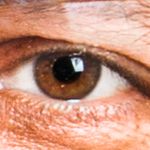Quality issues that I'm surprised about

Copy link to clipboard
Copied
I'm confused about these 2. I do get some rejected for quality, normally I have an understanding or idea why but these 2, in particular, were, in quality terms at least, better than most of my prior uploads. Can anyone tell me what I am not seeing?
Copy link to clipboard
Copied
Both pictures are underexposed, the 62 is strongly underexposed (no whites to the right on the histogram) and also misses some blacks (to the left):
In addition, you have strong artefacts and noise in the images:

Copy link to clipboard
Copied
ok thanks, mostly going to talk about 62 because that's simply more important to me to get on here, highlights were heavily reduced to try and for the grey sky HDR ting, I've reversed that and added a little more noise reduction (it won't stand up to much more without looking like a painting), would you say its better or just added more issues with overprocessing?
Copy link to clipboard
Copied
You didn't solve the artefacts problem:
Besides that: I would try sky replacement if the sky does not fit.
Copy link to clipboard
Copied
Hi @Deleted User ,
There are issue on this photo that cant be fixed in post processing. All elements in the forefront of your photo should be in focus, and also the color noise is still there.
Best wishes
Jacquelin
Copy link to clipboard
Copied
Photo 1 has underexposed shadows is noisy and the bird should be removed. What is the subject of the photo? What is a buyer looking for?

Copy link to clipboard
Copied
I was thinking abstract. However you probably have a point, %80 of what I upload is abstract and not had a download yet.
Copy link to clipboard
Copied
Even looking at your first as an abstract picture, I wouldn't buy it. You need to compose correctly:
Copy link to clipboard
Copied
Hi @Deleted User ,
The composition for the first file is not good. I cannot identify a subject. It is not very sharp and has both color and grain noise. Those are in addition to what was said about the underexposure that was commented on. Overall I believe that photo quality is not good. I get the impression that it was taken with a camera with small sensor or there is too much compression.
The composition of the second image is better. However the tree at the front seem to fall out of focus. There's also noise issue, both color and grain noise. And also there are signs of either high compression or taken with a camera with small sensor. As was said it too is under expose.
Best wishes
Jacquelin

Copy link to clipboard
Copied
is the micro 4/3 sensor considered a small sensor? I've recently changed my Sony to Olympus and personally I've liked the results but I have seen a rejection spike lately. If there's a compression element its likely because luminance noise reduction is already at 70. This is a slightly altered one with more noise removal and exposure heightened.
Copy link to clipboard
Copied
No, the 4/3 is not considered as a small sensor. Phone cameras have a small sensor. But still, it may be limited for what you want to do. You need to inspect your pictures at 100% and 200%. If you see artefacts as on your pictures, chances are high that the picture gets a refusal. And artefacts like on your church picture are incorrigible. You may edit less dramatically, if you have access to the raw file, you may use a better noise reduction program, but generally, you have trouble with artefacts like on your pictures.
There is also chromatic aberration, and you should clean up some debris on the picture:
Your pictures may be usable for print, I've used worse, but stock needs to keep the requirement high, as they do not know, how the buyer will use the file.

Copy link to clipboard
Copied
Now I understand what you meant by artifacts, looked up on google before and couldnt find anything. Is that caused by dust on the sensor or something? And yes I shoot everything in RAW
Copy link to clipboard
Copied
Artefacts may have multiple causes, but most of the time, it's over processing or hardware limits, like lens errors.

Copy link to clipboard
Copied
thanks I'd like to learn more about this to avoid in future whats best to look up
Copy link to clipboard
Copied
- Chromatic aberration happens when there is a “hard” edge between dark and light. It happens, even with the best lenses, but is stronger with the cheaper lenses. It can normally be corrected. You need to check the effect at 100 and 200%.
- Noise reduction tends to wash out colours and “smears” hard edges. Over-sharpening to compensate the noise reduction will introduce artefacts similar to the ones you have. When reducing noise and sharpening, you need to check the effect at 100% and 200% (sharpness is best appreciated at 100%, artefacts are very visible at 200%).
- The histogram shows you an equilibrated exposure if there is a nice curve filling the whole space from left (blacks) to right (whites).
- The white balance is correct, when grey is grey and not bluish or yellow. The problem is to find the correct grey point to measure, sometimes improvising is needed.









